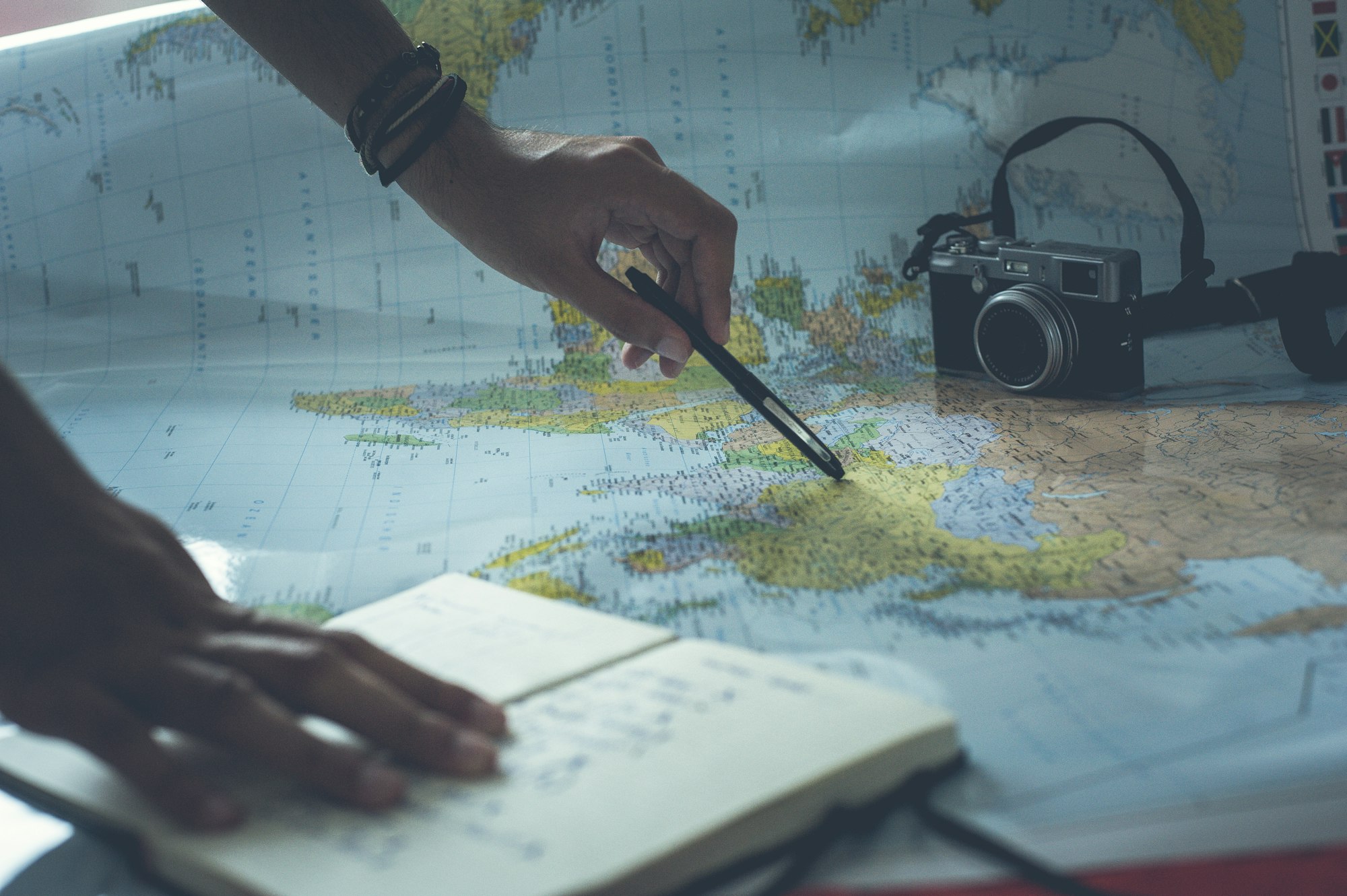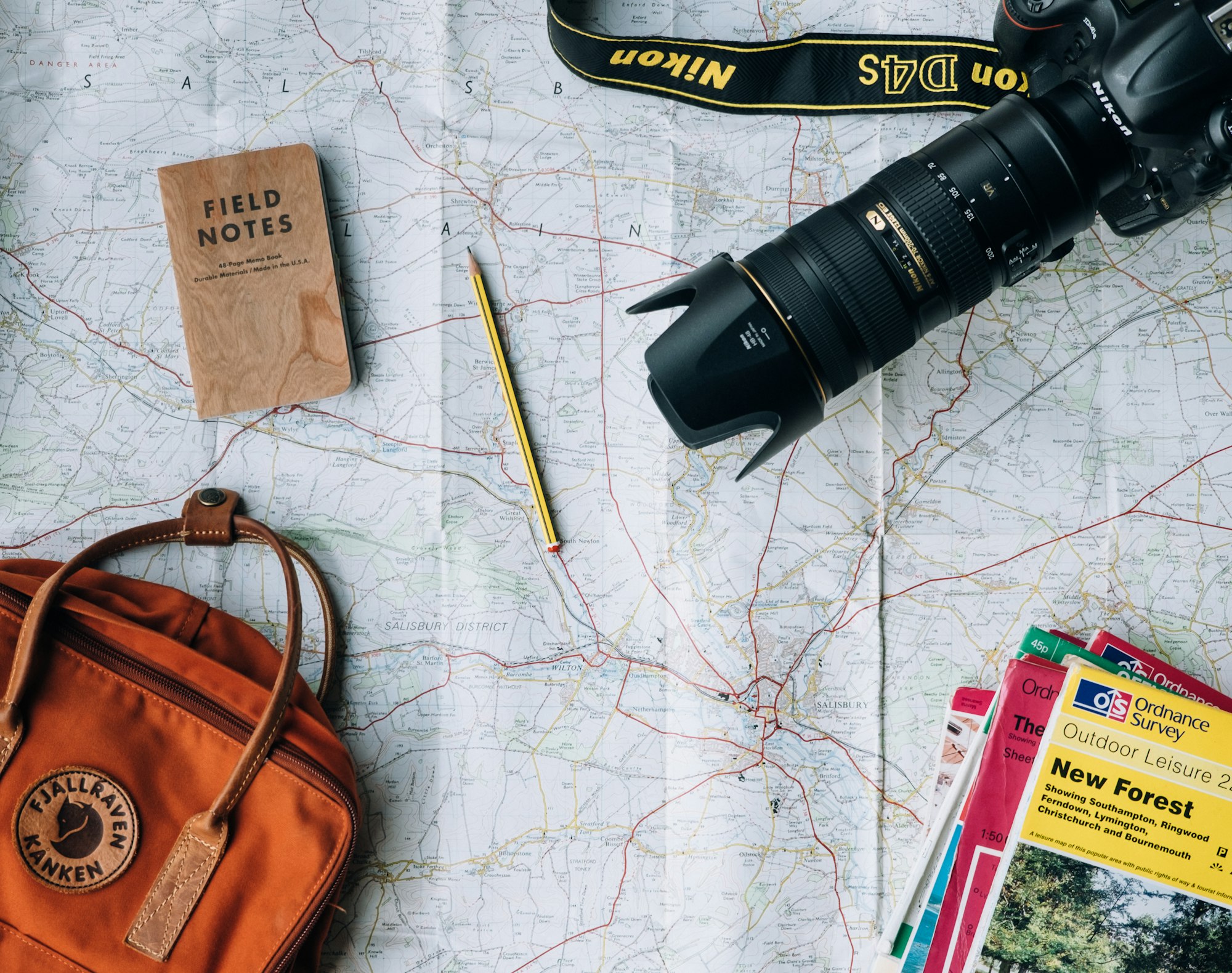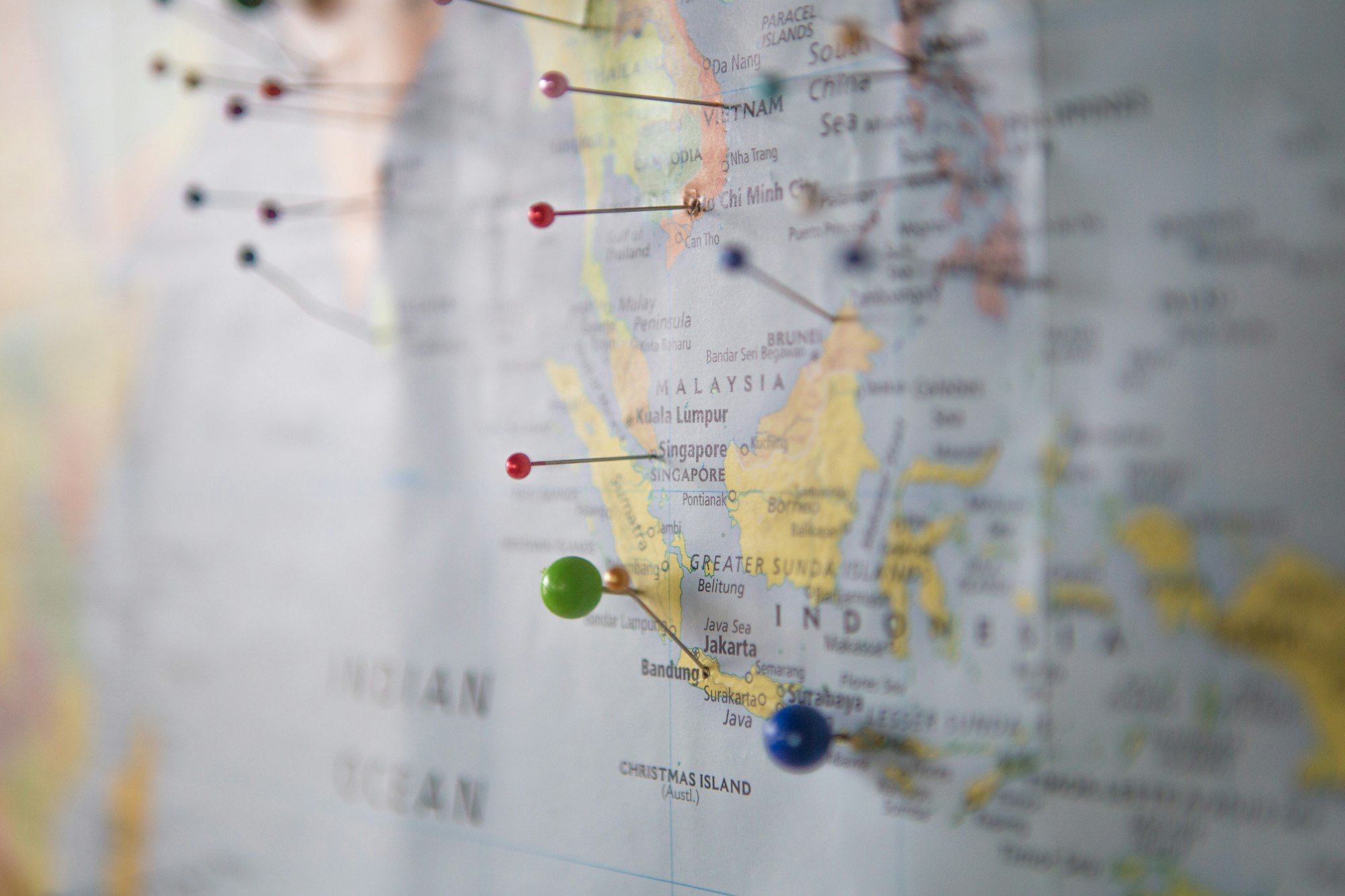The Mistake of Missing the Map

This article came about from a comment I received on one of my posts, which talked about the mistakes I've made in goalsetting and how I avoid them now. Starting the new year off early, a lot of us do our best to set targets for the year and strive towards achieving them.
Especially for engineering students like me who go to university to get a degree, try and get some experience on the side, and work on something meaningful - it feels useful to set some sort of aim to work on each year.

If you want to see the full post, you can find it here on LinkedIn:
In this piece, I wanted to talk specifically about one of the bigger mistakes from the post, that, had I not made it, would've saved me a lot more time in my work, and made me a lot more fulfilled in my goals.
What is it, you ask?
Forgetting to Review.
Simply to look back at how far you've come, ask yourself if the goal still holds meaning to you - a day on, a week on, 3 months on - and use that to set a new path.
My New Theory of Goalsetting
After listening to a number of different content creators and academics who discuss productivity and goalsetting, my mindset around the practice has shifted a lot. Let me tell you where it's settled at right now, through one of the best metaphors I can use to describe it:
It's called the progress map.

Think of everything you do throughout the year as a journey that takes you from point A to point B. Even now, you're walking a path on that map - whether it's through reading this post to learn more, spending time in nature, going out with friends - you're making a journey for yourself.
Goalsetting is the act of placing markers on that map - pins that you add to various different places, to tell yourself - 'that's where I want to go' or 'that's where I want to be by a certain date'.

And just like when you follow a map to get from A to B, the best use of your attention tends to be split in these two different ways:
- 90% of the time, you're figuring out where you need to go now. The next step you can take, the next road you can follow that will bring you to your destination.
The allegory for this is setting direct, input-based goals - the regular practices that you can follow to lay the groundwork for actually hitting your goal. Going to the gym, eating a healthy meal, studying for an hour.

- 10% of the time, you're looking forward towards the big milestones in your journey - the landmarks, the peak of the mountain, the goal that's out of reach for now.
The allegory for this is setting indirect, output based goals - the big achievements that you want to hit by the end of the year, whether they be numbers to hit or qualities to have gained. Getting a 6 pack, reaching a certain weight, or passing an exam.
These very well might change as you go on - but that's fine, as long as you're working towards something you're passionate about.

The metaphor reminds me of my time doing the Duke of Edinburgh. With a team of about 7, we had a designated navigator everyday, who would be constantly checking the map and guiding us through the route.
So, a metaphorical map is all well and good, but what systems or tips can you use to actually track progress?
Firstly, you need the help of the navigator.

The Navigator
If you're goalsetting by yourself, you need to 'mentally consult' that navigator within you daily.
The trick here is to have set just a few goals that you can hyper-focus on. If you place a million points on the map that are miles apart, you'll be stretching yourself thin trying to get everywhere.

For example: the goals that I’m hyper focusing on this year are self care and content creation. Having 2 goals is small enough that more or less at least a few times in the day, they will pop up in my head, I can put them in my working memory for a bit, and just judge where I’ve gotten to on that specific day with those goals. Every time I'm reminded of them, I think:
For Self Care:
- Have I drank enough water today?
- Have I eaten at least once?
- Have I done my daily pushups?
For Content Creation:
- Have I planned any content creation today?
- Have I written any content today?
- have I posted anything today?
These small daily metrics that I measure myself by help me ground myself in my daily work to navigate towards those goals. It's like checking the map regularly.

Progress Over Time
On a wider level, I think it’s important to track progress from a more granular perspective - in other words, in the long term, on a day by day basis, how can I tell I'm improving?
This is really important for sustaining drive towards your goals. If you don't see positive change (which you won't, when you're just getting started) it can be demotivating - but rewarding yourself for any improvements you do notice becomes massively important to keep momentum. This is often called 'measuring the gain against the gap' - comparing your progress to your past self, rather than to the person you eventually want to become.
If you're at the base of the mountain looking up at the summit, it often feels like an insurmountable challenge. But if you start climbing and look back, you get an appreciation for the heights that you've already reached. Use this to your advantage.

For numbered, input based goals (i.e. I need to do x push-ups a day) tracking is pretty easy, as long as you keep a note of however many you do each day.
In general, the simpler your system, the better - do what works for you and has the least friction to get going. Whether that means having a piece of paper numbered 1 to 365 and writing your progress there, or putting it on a spreadsheet.
The Traffic Light Method

Another tool I've found useful, both for revision and goalsetting, is the traffic light method:
Ask yourself, each day, how you thought you did in achieving your goals, regardless of what they are. Score yourself using the red/amber/green system. If you managed everything you wanted to, amazing - if you completely failed, take it in your stride - but record it.
The ideal end point is that you get to a place where you’re seeing green lights for more than a week.

Throughout my entire journey learning about productivity, self help and goalsetting, one piece of wisdom has stuck with me. It's a quote that I began this blog with, and I hope it gives you some inspiration to get going too:
"The journey of a thousand miles, begins with a single step."
On the off chance that you've read something on here and loved it, or want to read more, feel free to shoot me a message on my socials:
Instagram:
Twitter:
Facebook:
LinkedIn:
The feedback helps massively. Thanks!
